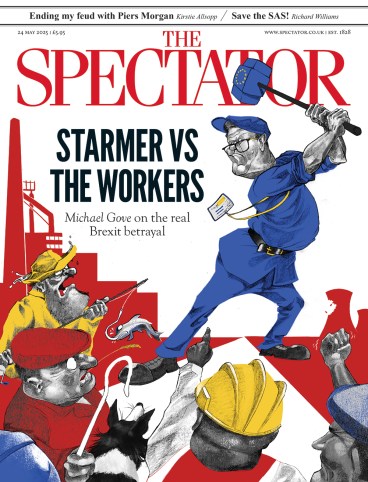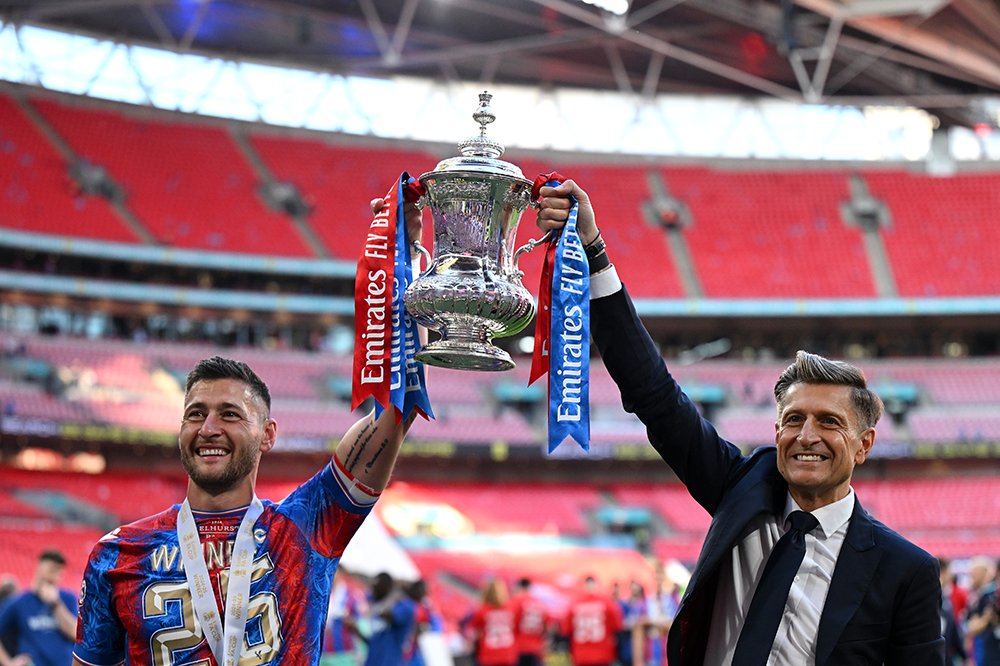
Without wanting to sound like a refugee from the 1950s, it was a shame that last week’s Cup Final was not the climax to the domestic season but sandwiched between a cluster of Premier League games – and kicked off at 4.30 p.m., which must have been unhelpful for those hoping to get a train back to Manchester. Palace wholly deserved to win: they defended brilliantly, broke like lightning and cunningly sabotaged any momentum a ponderous Manchester City might have been trying to develop by hurling themselves to the ground at the slightest opportunity. Never mind: the Palace fans were fantastic and kept Wembley afloat on a rich sea of sound throughout.
As for kick-off timings, don’t expect them to get any better. As part of its multi-billion rights deal, Sky will show nearly 100 more Premier League games next season. So get ready for Thursday night football, Friday lunchtime football, breakfast football, elevenses football so Sky can fit the games in somewhere. But it needs to be careful here: eventually fans will give up as the times keep switching. And nothing screws up a broadcast like a half-empty stadium.
There’s a good argument today that the most influential figure in modern football is not the manager or agent but the Man Upstairs. You must have noticed how many players thank the Lord Almighty after smashing a 30-yard rocket into the back of the net. The wonderful Palace striker Eberechi Eze is a case in point. Immediately after his beautifully taken winning goal at Wembley he pointed towards the heavens. Then in a wonderfully sweet post-match interview, asked to make sense of what had just happened, he expressed one unshakeable belief: it was all God’s doing.
It would be interesting to see a study on the influence of evangelical Christianity on the modern game but if I were the manager of 11 God-fearing disciples, I would be extremely happy. The Christian values of unselfishness, teamwork, clean living, moral responsibility and equanimity in the face of triumph or disaster are just what a successful and harmonious team needs.
Brian Glanville, one of the greatest sports writers who ever lived, left us last week at the grand old age of 93. He was a man of wide interests, robust views and flawless use of the English language, as this snapshot shows. A young colleague was covering a Crystal Palace match for the Observer, and Glanville was also there, for the Sunday Times. This was the mid-1980s, and the Independent newspaper was soon to be launched. My friend asked Glanville for advice: he had been invited to join the new paper but felt loyal to the Obs. What should he do? ‘Dear boy,’ said Glanville, putting his arm around him, ‘loyalty is what they fuck you with’. My friend joined the Indy a couple of days later.
There’s a good argument that the most influential figure in modern football is not the manager but the Man Upstairs
The English are so disapproving of it they call their national ruling body the Lawn Tennis Association. We are talking clay-court tennis here, which is in its high season as the 2025 French Open bursts into view later this month. Sue Barker is the only Brit to have won a singles title in Paris in the Open era – and that was 49 years ago. You have to go back 90 years to find the last British winner of the men’s title: Fred Perry in 1935.
And yet there’s a strong case that two Englishmen came up with the idea of playing on clay, in the late 19th century. Wimbledon champion William Renshaw and his twin brother Ernest, a doubles champion, owned a villa on the French Riviera, and because their grass court wilted in the sun, they covered it with powdered terracotta from a nearby ceramics factory. Some experts dismiss this story but that’s just pettifogging nitpicking in my view. So come on Jack Draper: do your best for the Renshaw brothers.






Comments